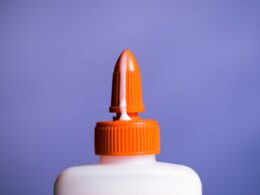Many women think they urinate during orgasm, but it’s not urine that comes out through their pee hole. Instead, it’s female ejaculate or amrita.
It’s typically not a sign of anything serious. But if it happens often, you may need to treat or manage the underlying cause to get relief.
Urinary Tract Infections
A urinary tract infection (UTI) is when bacteria grow in your kidneys, bladder or urethra. The urethra is the tube that carries urine from your bladder to your penis (in people assigned male at birth) or to your clitoris (in women). Women get UTIs more often than men, because their urethra is shorter and closer to the anus, and because they are more likely to have unprotected sex or to use a diaphragm for birth control. UTIs can also be a symptom of sexually transmitted infections (STIs) such as chlamydia and gonorrhea – This part was prepared by the service team sexoctopus.com.
If your doctor thinks you have a UTI, they may test the tip of your pee hole to see how much pain you feel when you urinate. They might also take a sample of your urine for a urinalysis and a culture. They may give you antibiotics that target the bacteria they suspect is causing your UTI.
If you have a UTI, you should drink lots of water and cranberry juice. This helps your body clear the infection out. If your UTI doesn’t go away, you might need to visit a hospital so they can give you antibiotics through a vein (intravenously or IV). If you are treated for a medical condition that causes painful urination, the symptom should resolve as soon as you treat the underlying cause.
Meatal Stenosis
The urethra (ur-EE-thra) drains urine from the bladder through a hole on the tip of the penis called the meatus. When the meatus gets narrow and blocks the flow of urine, it is called meatal stenosis. The condition most often happens in young boys, usually after they are circumcised. It also can occur because of irritation from a diaper or clothing, from constant pressure of a catheter, or from surgery on the penis. Boys with meatal stenosis may go to the bathroom frequently, but they usually have a small volume of urine. Their urinary stream sometimes deflects upward and they may struggle to stand up to pee. They often have pain during urination and a burning feeling after they pee.
To diagnose this condition, your child’s health care provider will do a physical exam and ask questions about the symptoms. They may also watch a boy pee to see how the urinary stream looks. There is no need to measure the width of the meatus because it’s usually very narrow. Treatment is surgery to cut apart the bottom part of the meatus to make it wider. This is a surgery called a meatoplasty or meatotomy. It’s rare for meatal stenosis to come back after this procedure.
If the symptom is due to an infection or the prostate gland, antibiotics will be needed to treat it. The pain and burning will probably go away on its own after a few days.
Prostate Infections
Pain when peeing after sex is common in men because of friction during masturbation and anal or vaginal sex. It can also be a sign of a prostate infection or problems with the epididymis, which is the sperm-carrying tube within the testicles. Often, this symptom goes away with proper care. You can help yourself by using appropriate condoms and lubrication, practicing good hygiene, and avoiding rough stimulation during sexual intercourse and anal or oral sex.
A bacterial prostatitis can cause painful urination and ejaculation, especially when it’s chronic (long-lasting). The prostate is a gland in the male reproductive system. It sits in front of the bladder and wraps around the urethra, the tube that carries urine out of the body. The prostate makes fluid that is part of semen, which protects and energizes sperm as they travel to the egg.
Bacterial prostatitis can be caused by bacteria entering the body through the urethra, from infection outside the prostate, or by inflammation of the urethra or prostate. The symptoms of prostatitis can range from mild to severe and come and go.
A doctor can diagnose prostatitis by asking about your medical history, symptoms, and family health history. A physical exam may include a digital rectal exam to feel the size of your prostate. Your provider might also recommend a pelvic ultrasound, x-rays, or CT scan. Other tests may include a blood test, a urinalysis, and a biopsy of the prostate or urethra.
Allergies to Latex Condoms
Painful peeing after sex isn’t always caused by a prostate infection, but rather it could be a sign that your skin around your genital area reacted to the condom or lubricant you used. A latex condom allergy (Type I allergic reaction) occurs when the immune system mistakenly identifies natural rubber latex proteins as harmful substances. It then produces antibodies to fight them, resulting in symptoms such as itching and redness at the site of contact. Symptoms can also spread to the rest of the body, such as hives and respiratory issues such as wheezing and tightness of the chest. More severe reactions to latex can lead to anaphylaxis, which requires immediate medical attention and is potentially life threatening.
If you have a mild allergy to latex, it can cause irritant contact dermatitis that causes itching and redness at the area where latex touched your skin. This type of reaction isn’t as serious as an allergic reaction, but you should still inform your sexual partners and make sure they use non-latex condoms.
If you have a severe latex allergy, it can lead to histamine-induced cutaneous urticaria and a water-filled blister at the affected area that is very painful to touch. This type of allergy can also result in breathing difficulties, so it’s important to carry an epinephrine auto-injector at all times, as this medication works quickly to reduce histamine levels in your bloodstream and restore your normal heart rate and respiratory function.









